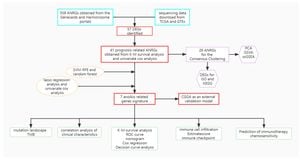South Korea's push for innovative future mobility took center stage during a recent visit by the IDE delegation from the Netherlands, which aimed to strengthen partnerships with local universities, industry leaders, and funding organizations. The delegation, led by Nicole van Nes, included renowned researchers and funding experts, all eager to explore collaborative opportunities within this vibrant technological ecosystem.
The visit kicked off at the Future Mobility Global Forum, held at the Convensia Convention Center in the heart of the dynamic city of Inchon, from January 15 to January 20. This marked the third collaborative milestone between IDE researchers and mobility experts from Stanford University’s South Korean branch, following previous symposiums held at TU Delft and Stanford University.
“I hope this visit marks not the end of a trip but the beginning of more collaborations between the two countries,” Euiyoung Kim, who coordinated the event, emphasized. This sentiment drove the discussions as delegates participated actively, sharing their insights on several key areas of future mobility.
Among the primary themes identified by the IDE delegation were Autonomous Driving, Connected Mobility, and Sustainable Urban Mobility. Each theme was spearheaded by different IDE researchers, ensuring a broad range of perspectives and expertise were brought to the table. Nicole van Nes, Professor of Human-Centered Design for Smart Mobility, underscored the significance of prioritizing people within the technological advancements. “A human-centered design approach is important for smooth adoption,” she asserted, setting the stage for more sustainable and user-friendly innovations.
Your wish to merge innovation with societal challenges was echoed by Achilleas Psyllidis, Assistant Professor of Urban Mobility. He expressed optimism, stating, “The real leap forward lies in merging cutting-edge mobility technology with smart urban planning and human-centered design to create a more sustainable future.” This philosophy of melding technology with user experience bridged the gap between research and real-world application.
The forum featured keynotes from multiple Dutch and Korean institutions, alongside roundtable discussions with experts from various universities and organizations, including the Korea Europe Research Center and Seoul National University. These collaborative discussions opened pathways to potential joint funding applications and bilateral research initiatives.
Further enriching this endeavor, the IDE delegation visited several key innovation centers, such as the Korea Railroad Research Institute and the Autonomous A2Z at K-City. These visits underlined the opportunities for collaboration with leading firms, including Hyundai Motors and Morai.ai. “South Korea’s dynamic innovation scene sets the stage for future partnerships,” declared Kim, emphasizing the collaborative spirit throughout the visit.
On the last night of the program, the IDE delegation was honored to attend a reception hosted at the residence of Peter van der Vliet, the Dutch ambassador. This gathering not only celebrated the successful week but also strengthened personal connections among the participants, paving the way for continued dialogue and collaboration.
“Through this visit, I realized how important it is to have a strong team of delegation members who actively shaped the program together,” concluded Euiyoung Kim. The week was characterized by impactful dialogues, workshops, and social gatherings, culminating with the shared goal of driving forward sustainable mobility.
Following their busy week, the IDE delegation looks forward to building on the relationships established during this trip and working collectively to shape the future of mobility. The innovative environment present in South Korea promises to propel these endeavors and lead toward advancements with far-reaching benefits for society.



